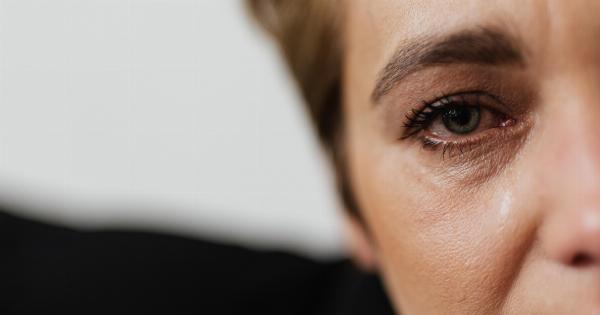Head injuries are a common occurrence and can range from mild concussions to more severe traumatic brain injuries. It can be difficult to know if a head injury is serious or not, but there are certain signs and symptoms to look out for.
Signs and Symptoms of a Head Injury
Head injuries can be subtle and may not always cause immediate symptoms. However, there are certain signs and symptoms to look out for, including:.
Loss of Consciousness
If you or someone else loses consciousness after a head injury, it is a sign that the injury may be serious. Loss of consciousness can range from a few seconds to several minutes and should always be taken seriously.
Severe Headache
A severe headache that does not go away or gets worse over time can be a sign of a serious head injury. If you experience a headache that is accompanied by vomiting, dizziness, or vision changes, seek medical attention immediately.
Dizziness or Balance Problems
Dizziness or balance problems can be a sign of a mild concussion or a more serious brain injury. If you experience these symptoms after a head injury, seek medical attention to rule out a more serious injury.
Nausea or Vomiting
Nausea or vomiting can be a sign of a mild concussion or a more serious brain injury. If you experience these symptoms after a head injury, seek medical attention to rule out a more serious injury.
Loss of Memory or Confusion
If you experience memory loss or confusion after a head injury, it can be a sign of a serious brain injury. Seek medical attention immediately if you have trouble remembering what happened, or if you feel confused or disoriented.
Slurred Speech or Difficulty Speaking
If you experience slurred speech or have difficulty speaking after a head injury, it can be a sign of a serious brain injury. Seek medical attention immediately if you have trouble speaking clearly or if your speech is slurred.
Weakness or Numbness
Weakness or numbness in your extremities can be a sign of a serious brain injury. Seek medical attention immediately if you experience weakness or numbness in your arms or legs after a head injury.
Sensitivity to Light or Noise
If you are sensitive to light or noise after a head injury, it can be a sign of a mild concussion or a more serious brain injury. Seek medical attention to rule out a more serious injury.
Changes in Mood or Personality
If you experience sudden changes in mood or personality after a head injury, it can be a sign of a serious brain injury. Seek medical attention immediately if you notice changes in your behavior or personality.
Seizures
Seizures after a head injury can be a sign of a serious brain injury. Seek medical attention immediately if you experience a seizure after a head injury.
When to Seek Medical Attention After a Head Injury
If you or someone else experiences any of the signs and symptoms mentioned above after a head injury, it is important to seek medical attention immediately.
Even if the injury seems mild, it is better to err on the side of caution and get checked out by a medical professional.
It is also important to seek medical attention if the head injury was caused by a fall or a blow to the head.
Children and elderly individuals are particularly vulnerable to head injuries, and it is especially important to seek medical attention in these populations.
Diagnosing a Head Injury
Diagnosing a head injury typically involves a physical exam, a neurological exam, and imaging tests. During the physical exam, the doctor will check for signs of skull fractures, bleeding, or other visible signs of injury.
The neurological exam will assess the patient’s mental status, reflexes, and motor function. The doctor may also check the patient’s balance and sensory function.
If the doctor suspects a more serious injury, imaging tests such as a CT scan or an MRI may be ordered. These tests can provide a detailed look at the brain and can help diagnose brain injuries such as contusions, hematomas, or swelling.
Treatment for a Head Injury
The treatment for a head injury will depend on the severity of the injury. Mild concussions typically resolve on their own with rest and symptom management.
More serious brain injuries may require hospitalization, surgery, or other forms of medical intervention. In addition to traditional medical treatment, cognitive and physical therapy may be recommended to help the patient recover from the injury.
Preventing Head Injuries
Since head injuries can be so serious, it is important to take steps to prevent them from happening in the first place. Here are some tips for preventing head injuries:.
Wear Protective Gear
When engaging in sports or other activities that have a high risk of head injury, always wear appropriate protective gear such as helmets or head guards.
Use Seat Belts and Child Safety Seats
Always use seat belts when driving or riding in a car, and make sure that children are properly secured in child safety seats appropriate for their age and weight.
Prevent Falls
Make sure that your home is free from hazards that could cause falls, such as loose rugs or electrical cords. Use nonslip mats in the bathroom and install handrails on stairs.
Avoid Risky Behaviors
Avoid engaging in activities that put you at a high risk for head injuries, such as drug or alcohol use or reckless driving.
Conclusion
Head injuries can be scary and uncertain, but spotting the signs and symptoms of a serious injury can be life-saving.
If you or someone you know has suffered a head injury, seek medical attention immediately and follow up with appropriate care and treatment.

























